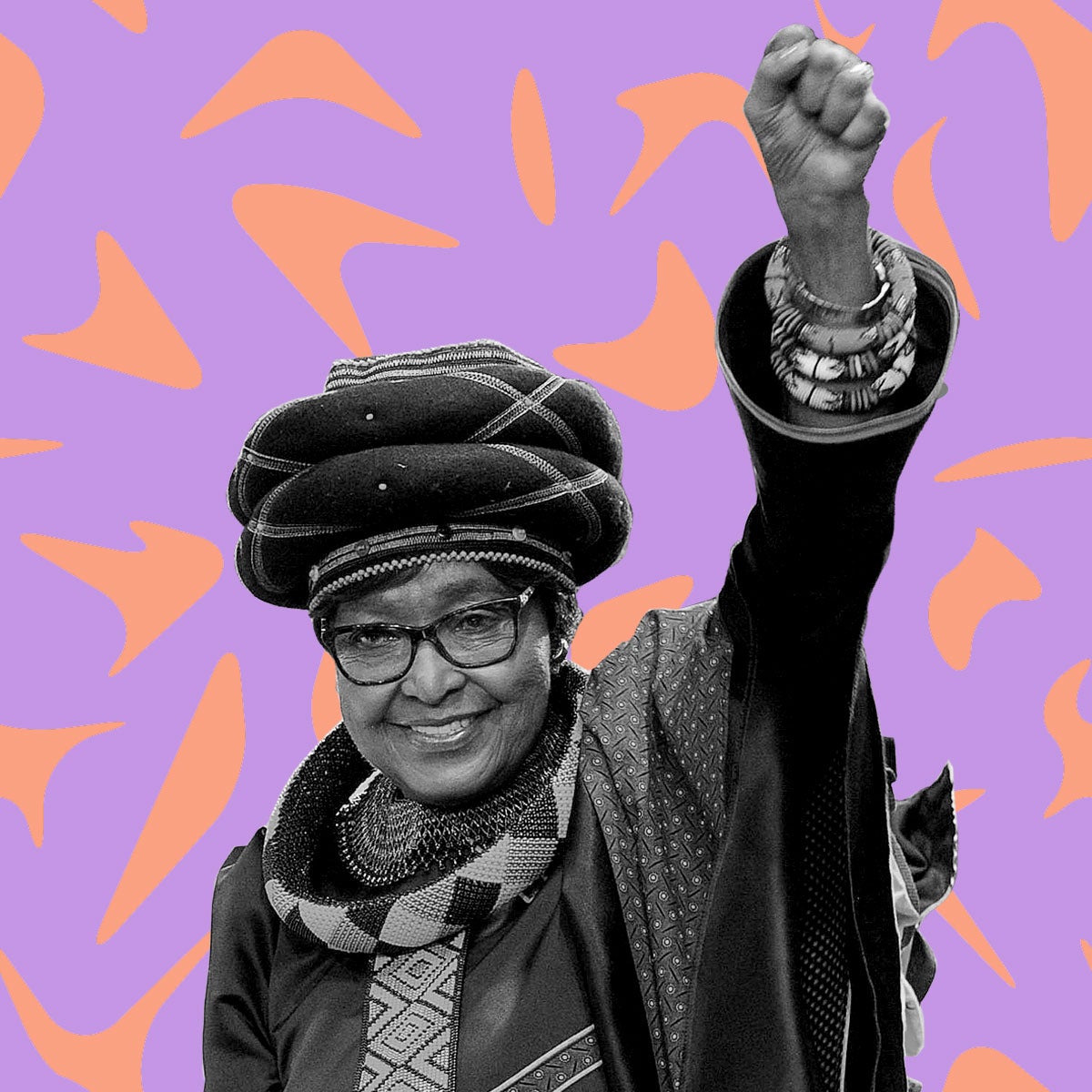
By Sisonke Msimang
In 1990, when Winnie Nomzamo Madikizela-Mandela finally toured America, she caused a stir. She made no pretenses about her commitment to Black people in America. While her the husband Nelson Mandela spoke like a statesman, Winnie spoke like a real woman. In a speech in Brooklyn, she explained, “We share with you the pain of racism,” she said. “That’s why we identify so greatly with you. We speak a common language, the language of the oppressed.”
This week, after Madikizela-Mandela died surrounded by her family, that distinctively direct voice went silent. It marked the end of an era in which the larger than life achievements of a remarkable pair of human beings dominated our political domain.
As people heard the news across Johannesburg, they began to make their way to the family to pay their respects. Some crowded around the hospital, where she had been treated for a few days. Others trekked to Soweto, to the house in Diepkloof popularly known as ‘parliament,’ where Madikizela-Mandela had lived and reigned for decades. The queen of Soweto, she was more a royal figure than a politician; she was loved with a respect that verged on reverence.
Her passing resonated around the world. Some of the most heartfelt condolences were sent from her brothers and sisters from across the pond, U.S. Representative Maxine Waters and Reverend Jesse Jackson among them.
Mam’ Winnie, as she was known across South Africa, was the embodiment of defiance. She was South Africa’s first qualified social worker and she rose through the ranks to become a senior figure in the African National Congress, where she held various portfolios over the years. For three decades she gave eviscerating media interviews and was the thorn in the side of the apartheid government.
The apartheid government saw her as enemy number one, a terrorist threat. She was repeatedly detained, abused and imprisoned. The hardest times were when she was separated from her children. Often the authorities would lie to her, promising visits and contact and then retract their offers at the last moment; an attempt to break her spirit.
However, Mama Winnie never broke.
The tougher the punishments meted against her, the stronger her resolve seemed to grow. She came to be known as the Mother of the Nation. She was like a lioness, ferociously protective of Black South Africans and their dignity.
Like many Black women, she endured painful blow after painful blow without flinching. Yet, the experience was trying. In a moment of reflection, she once said, “there is nothing the apartheid government has not done to me. There isn’t any pain I haven’t known.”
Madikizela-Mandela had an uncanny ability to put her suffering into words; to take her pain and use it to fuel her activism. Somehow she managed to wrap her tribulations in a bow of defiance, looking courageous even as she would have had every reason to cower.
Like countless Black women activists before and after her, Mama Winnie bore her cross not simply with stoicism but with confidence and white-hot fury.
While it’s easy to romanticise the burdens of the oppressed and to act as though there is something ‘natural’ about Black women’s pain, Winnie Mandela’s struggles took their toll. Though, like others before her, she understood that survival was contingent on turning racism into a beast that would bow at her feet. As much as the apartheid establishment hated her, she hated them more. She tripled their fury and laughed in their faces.
There is a scene in the documentary Winnie, a film that was produced last year, in which Mama Winnie berates a group of police officers who attempt to pull her out of a car as she is traveling with one of her grandchildren. She out-shoves and out-shouts them, refusing to make their work easy by complying. In full flight, her anger — like her intellect — was captivating and purposeful.
At that public gathering in Brooklyn all those years ago, as Madikizela-Mandela made her comments about ‘the shared pain of racism’ and the parallels between American and South African apartheid systems, a woman in the crowd watched. Neola Pittman, a resident of Brooklyn, was interviewed by the Washington Post. She said, “I’ve seen her in my mother. I’ve seen her in women just walking down the street. I’ve seen her for years.” Winnie Madikizela-Mandela found a way to make herself seen.
Women have always known that she was their champion, even as she was by all accounts ordinary. This was perhaps Madikizela-Mandela’s greatest superpower: Refusing to be overshadowed by any man. In resisting the temptation to shrink, she stood taller, allowing us to see her, in all her traumatized and resilient and courageous glory. She allowed us to see her, and she saw us too.
Sisonke Msimang is a South African writer. Her first book, Always Another Country: A Memoir of Exile and Home (World Editions, 2018) will be published in the United States in September 2018.
